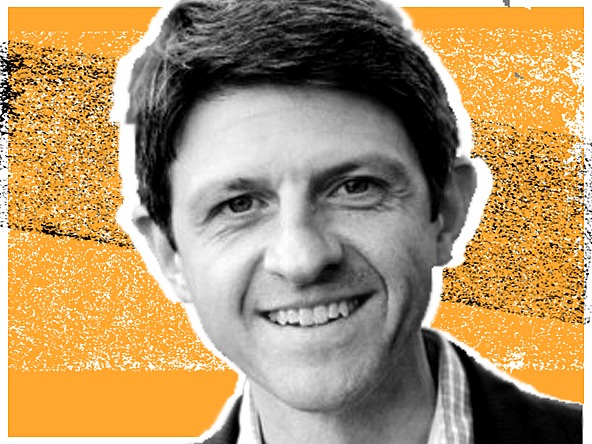How I work: Aaron Kechley, CEO, Zappi

What does your typical day look like?
I have four girls, and my wife is a physician, so she’s up and out of the door pretty early – usually by 7am. I am usually up between 6.30am and 6.45am and read the news to ease into the day. I will then take my kids to school. I usually start doing a little bit of work before I take them – things like looking at the revenue dashboards or Slacks from the UK. Around 40% of our staff are UK based, so there will have been things they have been doing overnight so I’ll quickly see what’s going on.
If I am working from home, I will be back online at 8.30am. I usually go into the office two to three days a week if I’m not travelling. I live not too far from Boston, so my commute is not too terrible compared to some, but traffic can still add up. Usually, I’ll do calls to the UK. In the office, I tend to be in meetings a lot.
I have learned over the years to get my assistant to make sure I have got two or three breaks in the day that no one can book, and I can catch up a little bit, think or grab something to eat. If I didn’t do that, it would be 12 or so meetings back-to-back. I meet with customers every week – it is important for me to hear from them directly and establish a relationship that goes beyond what our formal sales relationship might be with them. We’re private equity-owned, so I also spend a fair amount of time working with our board and providing regular updates to them.
At the end of the day, my last meetings are usually done around 6pm/6.30pm, and then I’ll take a break. Our kids do a lot of sports, so there’s usually a lot of shuttling that kicks in around 6.30pm or 7pm.
How are you adjusting to the new role [after joining Zappi in October last year]?
[The daily structure] is not that different. In my previous company, I was running a bigger business than Zappi. It was similar in many ways – the role of president is about the best CEO prep you can get without actually doing it. The only thing missing is direct management of the board. Obviously, Zappi is a different company, and so the challenges are different.
We’re about 300 employees in 13 countries, so very distributed for our size. I probably spend my time a little differently because of that – managing communication among the team and putting the right structures in place. What I have been spending a lot of time thinking about and working on in my time at Zappi is how to better enable teams to be more autonomous, empowered and have more control over decision-making.
A lot of startups come from a more personality-led leadership model, with a big public personality who makes a lot of the decisions, channels a lot of the communication and provides a lot of the feedback from the market. I think it can be very effective, but it doesn’t scale very well. We have so much talent, brainpower and motivation in the team, and I think a lot about how to channel it so, frankly, my job is easier. We have great talent, so they’re up to the challenge.
What motivates you in your career?
I have always been pretty driven to accomplish things. Accomplishing something that is challenging and hard, that people think is not totally possible, is motivating to me. Getting teams to accomplish something that’s challenging and hard is super motivating. When I can get a team to do something the team wasn’t totally sure it could do or didn’t know how to do, that’s probably one of the most satisfying things for me. That’s been true for me for a while as a leader – I tend to not be the flashy front man so much as someone who tries to get the team to own it, take the credit and succeed.
What is your leadership style?
I think I have evolved as a leader over many years. There’s a leadership style that relies a lot on expertise – earlier in your career, that’s usually what you got recognised for and how you got promoted to the next level, as you are an expert, make good decisions and people respect your knowledge. As you get further on, you can try to be the expert, but it can be quite limiting.
When you enter a new company, the chances are that you’re not the expert at all. Even if you know the industry, you are not an expert in that particular company’s ways, strengths and weaknesses. I have found that in order to keep progressing in my career, I have had to get better at leading not by being the expert, but by asking good questions and leading people to come to their conclusions on their own. That becomes a way more important skill for a CEO in a larger company. It also enables you to move across industries a bit better too.
It is always a journey – sometimes I find myself slipping into ‘expert mode’ about something I know something about and know more than somebody else. But I work hard to resist the temptation to tell the answer. If it’s an emergency I will do it, but otherwise you are denying someone a learning opportunity and removing your ability to hold them accountable for the outcome, and that ends up being way more problematic than taking a bit longer, perhaps, to arrive at a conclusion.
"We have so much talent, brainpower and motivation in the team, and I think a lot about how to channel it so, frankly, my job is easier."
Do you prefer working in the office or at home?
I like going into the office and being around people. I think it is difficult to build high-trust relationships virtually. High-trust relationships become most important in certain moments where you need them most, and it’s not something you can very easily cram. If something’s not going right or if there’s an issue between team members, if you don’t have trust, those things can be very difficult to address.
I learn something every time I spend time with people I don’t have a scheduled meeting with. But that said, I don’t think you need to be in five days a week for that benefit – two or three days works, if it’s regular.
It is nice to not have to rush quite as much in the morning – when I take my kids to school, I can be back at my computer by 8.30am rather than 9.15am. But it’s a short-run game versus a long-run game, I would argue – you gain some hours of work in the short run, but if you’re only doing remote, I think you miss out on the trust-building opportunities with your colleagues. I am good with the hybrid model.
Do you have any tips for others for managing workload, based on your experience?
I will sound like a broken record, but delegate your decision-making. And I say decision-making, not work – delegating work can mean ‘go do this task for me, bring me back the information, then I’ll read it and the I’ll make a decision’. That’s still quite a lot of work for a CEO.
Delegating decision-making is probably the bigger point – that can be scary if you are used to making a lot of decisions yourself. You have got to have trust in your team that they have the skills and competency to make high-quality decisions in order to delegate them. If you want to have better [work-life] balance, invest in people’s decision-making ability.
Also, having the right amount of breaks – not too many, not too few. That is the universal advice.
- This interview has been lightly edited.
- Read more ‘How I work’ interviews here.

We hope you enjoyed this article.
Research Live is published by MRS.
The Market Research Society (MRS) exists to promote and protect the research sector, showcasing how research delivers impact for businesses and government.
Members of MRS enjoy many benefits including tailoured policy guidance, discounts on training and conferences, and access to member-only content.
For example, there's an archive of winning case studies from over a decade of MRS Awards.
Find out more about the benefits of joining MRS here.













0 Comments